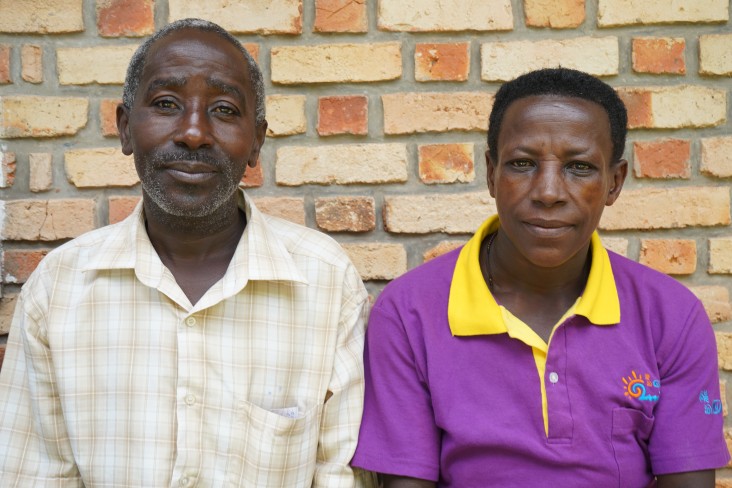Speeches Shim

Text by Betty Kagoro
Fifteen years ago, Lauben Agaba, a farmer and father of five children, tested positive for HIV at Rushooka Health Center located in the southwestern Ugandan district of Ntungamo. His wife Ruth tested negative; both thought there was no hope for their family.
“This was very confusing,” Lauben says. “But with the help of the counsellors, other HIV-positive clients and health teams supported by USAID’s Regional Health Integration to Enhance Services in the Southwest Uganda activity, we understood everything and I was enrolled on treatment.”
Ruth and Lauben are an HIV discordant couple. HIV discordance is when two people in an ongoing relationship, such as a husband and wife, have different test results, with one partner being HIV positive and the other HIV negative.
Approximately 6 percent of Ugandans, about 1.3 million people, are infected with HIV.
After having post-test counselling and starting on anti-retroviral (ART) treatment, Lauben decided to become one of eight Expert Clients, trained HIV-positive volunteers, at Rushooka Health Center II. Expert Clients serve as crucial links between people living with HIV/AIDS and services provided by community health facilities and external resources. They play a critical role in comprehensive HIV/AIDS prevention, care, treatment, psychosocial support and referral linkage activities. They also assist people with HIV to access treatment and remain in care and share their experiences and knowledge with other HIV patients to promote HIV testing and combat stigma.
“I became a mobilizer and educator in my community,” says Lauben. I wanted to use my own experience to sensitize my own children and other people in my community to stay safe. I reach where the health workers cannot reach to trace clients who have dropped out of care and encourage them to go back on treatment.”
USAID’s Regional Health Integration to Enhance Services in Southwest Uganda activity works with local Ugandan partners at every level of the health care system to create tailored, integrated health services for priority populations, including adolescents and people living with HIV/AIDS.

Comment
Make a general inquiry or suggest an improvement.